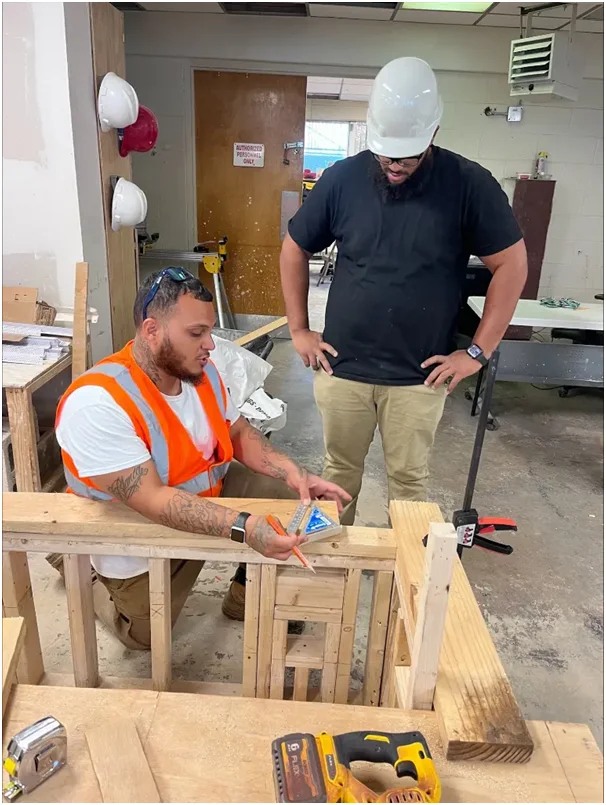The market for skilled trades jobs is shifting faster than it has in decades. The outlook for pay and work-life balance is quite strong because demand is still rising due to infrastructure improvements, housing projects, and renewable energy projects. If you want a career in trades, 2026 is a terrific time to start. It has a lot of chances where financial security meets shifting ideas about work-life balance.
Let’s explore more ahead!
Because there aren’t enough workers and there is a high demand for hands-on abilities, earnings in the skilled trade jobs sector are expected to keep increasing until 2026. By the end of 2026, the average salary for professionals in the U.S., such as electricians, plumbers, welders, and carpenters, is predicted to be between $65,000 and $85,000 a year.
This trend is considerably stronger in areas like Philadelphia. The wages in the region are projected to go up much more because the real estate market is growing quickly, infrastructure projects are still going on, and the government is putting money into utilities. Moreover, this not only makes the economy more stable, but it also makes Philadelphia’s programs for learning skilled trades more appealing to younger workers and people who wish to change occupations. Consequently, more and more people who don’t want to go to college are choosing these programs.

Most trades are making more money, but some are rising faster than others and need special skills. There are some skilled trades in demand in Philadelphia, which we are listing here:
Industrial electricians, especially those who work in power generation and plant operations, will keep making a lot of money. This is happening because when older people leave, companies need to fill technical jobs that keep key infrastructure running quickly.
As the U.S. progresses faster toward its clean energy goals, installers of renewable energy systems, notably solar panel and wind turbine technicians, are quickly climbing up the pay scale. Furthermore, these specializations mix hands-on experience with caring for the environment, which is something that younger people like Gen Z want to make a difference in.
Because of the building boom in Philadelphia, there will always be a need for skilled carpenters. They are more significant for city-building projects because they can incorporate new materials, intelligent systems, and designs that require less energy.
There are a lot of significant things that will impact the salary outlook for the trades jobs in 2026. Here are a few:

There aren’t enough skilled workers since baby boomers are leaving the job market. And there aren’t enough young people coming into careers in trades to fill the gap yet. This implies that higher competition for skilled professionals results in higher demand and pays them more.
There are always new projects since the federal and municipal governments are working to fix and modernize infrastructure. As roads, bridges, and new housing developments all need skilled workers, this in turn generates job security and the power to negotiate more.
In many circumstances, the roles have changed. Skilled workers now have greater leverage, which means they can negotiate for better pay, hours, or other advantages like health insurance and extra aid with training.
Today, the idea of balancing work and life in the professions and among employers is shifting. Formerly stereotyped as physically hard and inflexible, today the trade job sector promotes mental wellness, adaptability, and technology that streamlines processes better.
Even if tradespeople can’t completely move to remote work, flexibility is still changing. Now, companies are implementing flexible scheduling to enable employees to pick their own hours based on their family or personal needs. Additionally, independent contractors can also choose their own tasks or take breaks between contracts while they work on projects.
So that they may spend more time with their families during the slow seasons,
Technicians in Philadelphia may now opt for shorter seasonal contracts. This development shows how being able to adapt quickly is becoming increasingly important in skilled trade jobs, even when doing remote work.

There has to be a major digital revolution to change the trading. Technology is simplifying many aspects of daily life, such as job monitoring and artificial intelligence-driven scheduling solutions.
With the help of contemporary project management systems, smartphone applications, and digital checklists, teams are now able to finish administrative duties in a matter of minutes. Because of this, more time is available for labor-intensive employment.
With the breakthroughs that have been made in communication technologies, it is now much simpler for teams to stay in touch without having to be physically present and “always on.”
In recent times, better inventions in AI technology have made it simpler to keep track of progress, estimate, and plan materials, even lowering their levels of stress for employees by letting them anticipate future problems such as delays or shortages of materials.
The presumption is that businesses that show employees that they care about them and provide them with some degree of autonomy are more likely to have a talented workforce. In 2026, they expect that manual labor will not be sufficient to overcome the issue of an inadequate supply of skilled trade jobs.
In addition to that:
This is the point at which they are required to have access to Philadelphia programs for learning skilled trades. In addition, many of these programs now include instruction on soft skills apart from technical ones. These soft skills include, but are not limited to, leadership, flexibility, and teamwork.
In 2026, the world of skilled crafts will provide an oasis of safety for individuals who are looking for happiness and financial security. Workers in skilled trades jobs, whether they are just starting out or are advancing in their careers, will have it better than ever.
And Philadelphia is a prime example of this pattern. The city exemplifies a surge in skilled trades in demand in Philadelphia, supportive training programs, and strong industry partnerships, and it shows local ecosystems can foster the development of future generations of skilled labors.
For those looking for a career in trades, now is the time to receive the training, certificates, and apprenticeships you need to work in trades.
In short, 2026 will be a turning point for skilled trade jobs.
Things are changing because of higher pay, a different workplace culture, and technology that makes it simpler to be flexible. Also, employers are learning that it’s not enough to only value skill; they also need to value the person who possesses it.
For workers, this isn’t simply a paycheck; it’s an opportunity to get safety, respect, and health. For cities like Philadelphia, investing in programs for learning skilled trades is a way to make sure that both the city and the jobs will do well in the future.
It is simple that the trades are not only surviving the shift, but they are also leading it.
Read more: